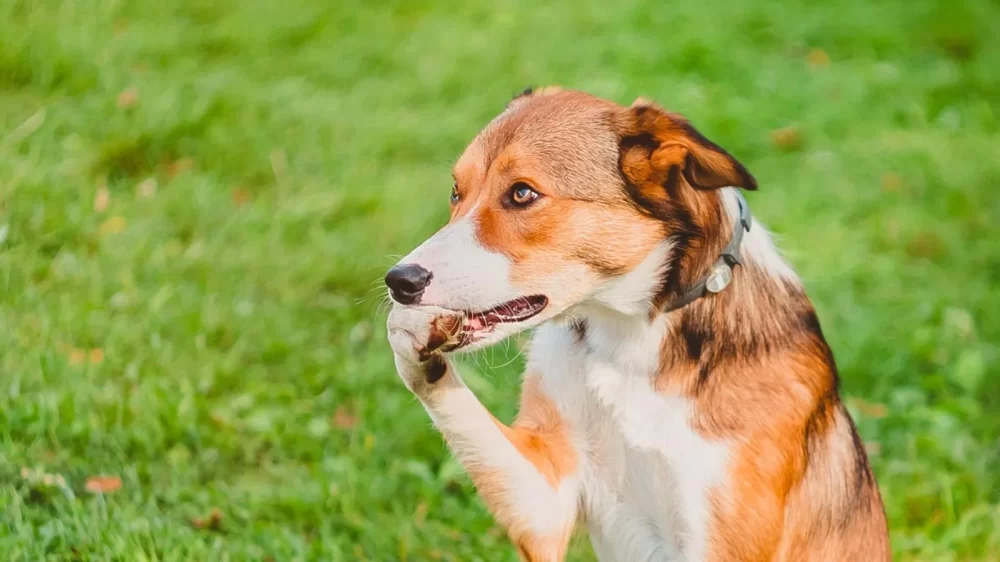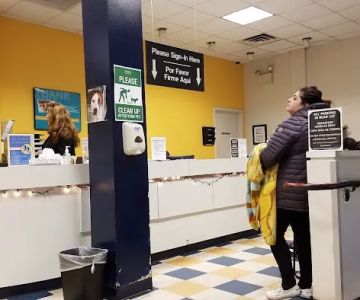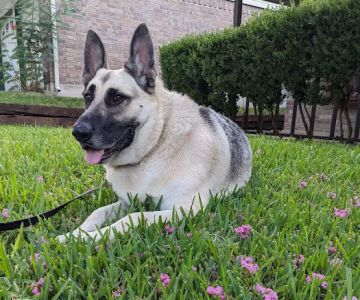Why Does My Dog Bite Their Paws?
If you're a dog owner like me, you've probably noticed your furry friend occasionally biting or licking their paws. At first, I thought it was just a normal grooming behavior, but when it started to become more frequent, I realized there might be something else going on. Paw biting can range from a minor habit to a sign of an underlying health issue. It’s crucial to understand why dogs engage in this behavior so you can address it effectively.
Common Causes of Paw Biting
Over time, I’ve learned that there are several reasons why dogs bite their paws, and it’s important to distinguish between the causes to treat the problem effectively. Some of the most common reasons for paw biting include:
- Allergies: One of the most common causes of paw biting is allergies. Dogs can be allergic to certain foods, pollen, dust mites, or even chemicals in cleaning products. These allergies can cause itching, leading to biting and licking of the paws.
- Infections: Fungal or bacterial infections can cause discomfort and itching in your dog’s paws, leading them to bite or lick the affected area. I had a situation where Max, my dog, developed a fungal infection on his paw that caused him to bite it constantly.
- Dry Skin or Cracked Paws: Dry or cracked skin on a dog’s paws can lead to irritation and discomfort. In colder months, or in dry environments, dogs are especially susceptible to dry paws that might prompt them to chew or bite.
- Injury or Pain: If your dog has suffered a minor injury or sprain on their paw, they might lick or bite to alleviate the pain or discomfort. I had a situation where Max injured his paw during a play session, and he started biting at it more often.
- Boredom or Anxiety: Just like humans, dogs can develop behavioral issues such as anxiety or boredom. If your dog isn’t getting enough mental or physical stimulation, they might start biting their paws as a coping mechanism.
How to Stop Your Dog from Biting Their Own Paws
1. Check for Health Issues
Before jumping into behavioral training, the first step is to rule out any potential health issues. I remember when Max started biting his paws more frequently, I took him to the vet to ensure there wasn’t a medical issue. The vet diagnosed him with a mild fungal infection, and with the right medication, the biting stopped. If your dog is persistently biting their paws, it’s always best to get them checked by a professional to rule out allergies, infections, or other health problems.
2. Keep Your Dog’s Paws Clean and Moisturized
Sometimes, dry or cracked paws can cause your dog to bite at them. I’ve found that keeping Max’s paws moisturized was incredibly effective in preventing paw biting. Using a dog-safe paw balm or petroleum jelly can help soothe dry, cracked paws. Be sure to clean your dog’s paws regularly, especially after walks, to remove any dirt or chemicals that may cause irritation.
3. Use an Elizabethan Collar
If your dog is constantly biting or licking their paws due to an injury or infection, one of the most effective methods to stop the behavior is by using an Elizabethan collar (commonly known as the "cone of shame"). I had to use one for Max when his paw infection became more severe, and it prevented him from reaching his paws while he healed. While it might be uncomfortable for your dog at first, it can be essential in breaking the cycle of paw biting and giving the area time to heal.
4. Treat Underlying Allergies
If allergies are the cause of your dog’s paw biting, it’s important to identify and treat the root cause. I’ve worked with my vet to determine that Max’s allergies were primarily triggered by certain types of grass. Depending on the allergy, your vet may recommend antihistamines, a change in diet, or special shampoos designed to reduce allergic reactions. Regular allergy testing can help pinpoint the source and provide relief to your dog.
5. Provide More Mental and Physical Stimulation
Boredom is another major cause of paw biting, especially if your dog isn’t getting enough exercise or mental stimulation. To keep Max occupied, I started giving him more interactive toys and engaging in longer walks and play sessions. Dogs need a variety of activities to keep their minds and bodies active. Puzzle toys, fetch, and even training sessions can help prevent destructive behaviors like paw biting. I noticed a significant reduction in paw biting once I increased Max’s exercise and playtime.
6. Redirect the Behavior
When training your dog to stop biting their paws, it’s important to redirect the behavior. Whenever I caught Max biting his paws, I immediately distracted him with a toy or a command he was familiar with. Offering an alternative behavior, like fetching a toy or sitting on command, helped break the cycle of biting and reinforced positive habits. Positive reinforcement, such as treats and praise, also works well when your dog stops biting and redirects to a more acceptable behavior.
7. Try a Behavioral Modification Program
If your dog’s paw biting is related to anxiety or boredom, behavioral modification might be necessary. This may involve teaching your dog new coping mechanisms, such as teaching them to go to their bed or crate when they feel anxious. I worked with a trainer to teach Max to relax in his crate when he felt stressed, which reduced his paw biting. Training programs that focus on positive reinforcement and reducing anxiety can make a huge difference.
Real-Life Story: My Experience with Max
When I first noticed Max biting his paws more than usual, I assumed it was just a harmless habit. However, after observing him for a while, I realized it was more than that. Max started to chew and lick his paws obsessively, and I knew something was wrong. After a vet visit, I learned he had a fungal infection. With the right treatment and some changes to his routine, Max stopped biting his paws, and his health improved significantly. It was a reminder that sometimes, the solution to these behaviors lies in looking beyond the surface and understanding the root cause.
Conclusion
Stopping your dog from biting their own paws requires a combination of understanding the underlying cause, being patient, and implementing the right strategies. Whether it’s a health issue, allergies, boredom, or anxiety, there are several effective methods to break this behavior. With the right treatment and consistent training, you can help your dog live a healthier and more comfortable life without the constant paw biting. If you’re unsure of the cause or need additional help, consulting with your vet or a professional trainer can provide the guidance you need to tackle the issue successfully.












